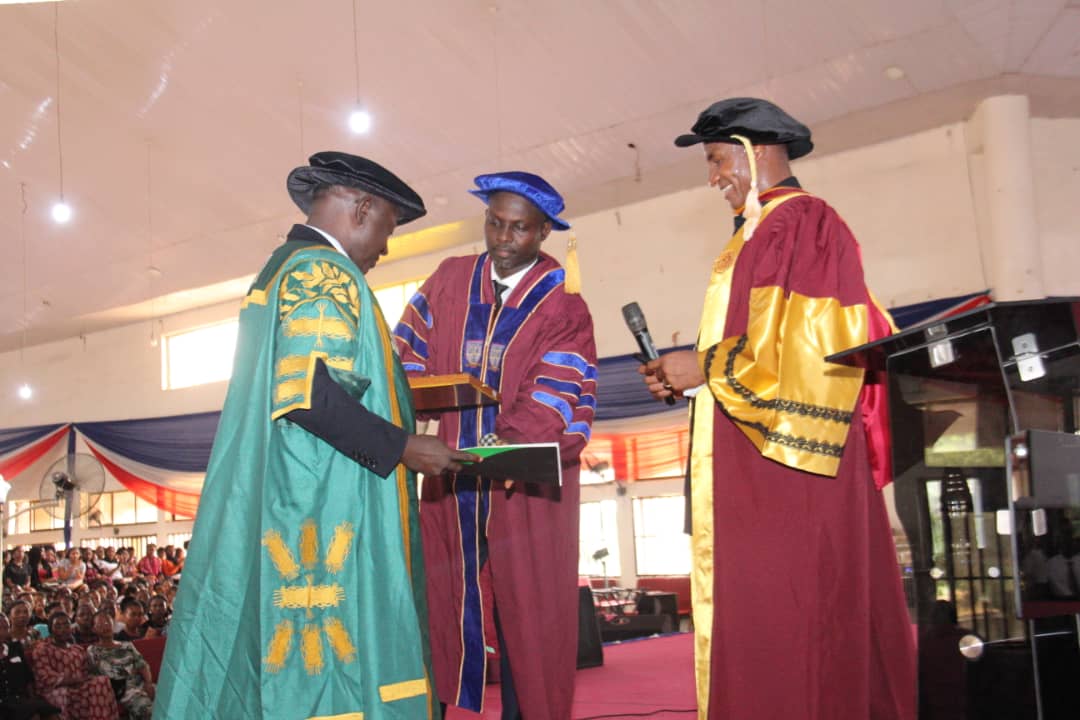
Bingham University Holds First Public Lecture On The Topic 'Empowering The Church For Societal Impact'.
Published on: Jun 3rd, 2024
Bingham University marked its first public lecture, centered on the theme "Empowering the Church for Greater Societal Impact." The event attracted guests such as the Pro,Chancellor, Prof Andrew Haruna,Former Minister of Labour and Producivity,Chief Emeka Wogu,Council members and other distinguished guests, leaders of industry, academics, and the university community.
In his address, the Vice-Chancellor,Prof. Haruna Kuje Ayuba highlighted the crucial role of the Church in transforming the socio-political and economic landscape of the country. He stated that the Church should guide society towards holistic growth and development, moving away from a consumer-oriented economy. Prof. Ayuba stressed that the Church holds the key to resolving national and global crises, citing biblical examples such as Joseph in Egypt, the Israelites in Goshen, and Isaac in Gerar. He expressed his appreciation to the guest speaker, Prof. John Kennedy Opara, for accepting the invitation despite his busy schedule. The speaker known for his extensive expertise in agriculture, construction, food processing, packaging and renewable energy, was praised for his belief in the Church's potential to become a positive agent of transformation.
Prof. Ayuba concluded by thanking everyone for their presence, expressing confidence that the lecture would not only be enlightening but also inspire attendees to initiate catalytic change in their communities.
Prof. John Kennedy Opara OFR, founder of CSS Global Integrated Farms unveiled a comprehensive strategy to equip the Church for a pivotal role in economic development. His presentation, titled "Equipping the Church for Economic Development: Practical Strategies and Perspectives," highlights the Church's potential to drive economic growth and social transformation in communities. Prof. Opara explored the longstanding relationship between religion and economics. He posits that the Church, a cornerstone of many communities, holds significant potential to influence economic development positively. However, realizing this potential requires deliberate strategies and concerted efforts.
Opara emphasized the multifaceted role of the Church, which extends beyond spiritual guidance to include social change, charitable aid, and moral leadership. He added that historically, the Church has been instrumental in shaping cultural norms and advocating for social justice. The church continues to serve as a hub for community engagement through various support networks, educational programs, and outreach initiatives”. Prof. Opara outlined the fundamental principles governing economic activities: supply and demand, competition, and incentives. He emphasized the importance of sound economic management, equitable resource distribution, and sustainable growth for a country to improve its economy.
Prof. Opara articulates the Church's mission to serve communities holistically, addressing both spiritual and material needs. He identified several biblical principles underpinning the Church's involvement in economic development such as stewardship, justice and equity, compassion and generosity, work and dignity.
Opara proposes the following practical strategies to equip the Church for economic development: Financial Literacy and Education Programs; Entrepreneurship and Job Skills Training; Microfinance and Small Business Support; Social Enterprise and Community Development Projects; Advocacy and Policy Engagement; and Collaboration and Partnership.
He stated that the Church has the potential to be a driving force in economic development by leveraging its unique position and resources, he stated that the Church can foster economic growth, address systemic inequalities, and contribute to sustainable development.
Highlights of the public lecture was the presentation of plaque and souvenirs to the guest Lecturer by the Vice-Chancellor and the presentation of goodwill messages from the Pro-Chancellor, Prof Andrew Haruna , the representative of the Vice-Chancellor of Nasarawa State University and former Minister of Labour and Productivity, Chief Chukwuemeka Wogu.

